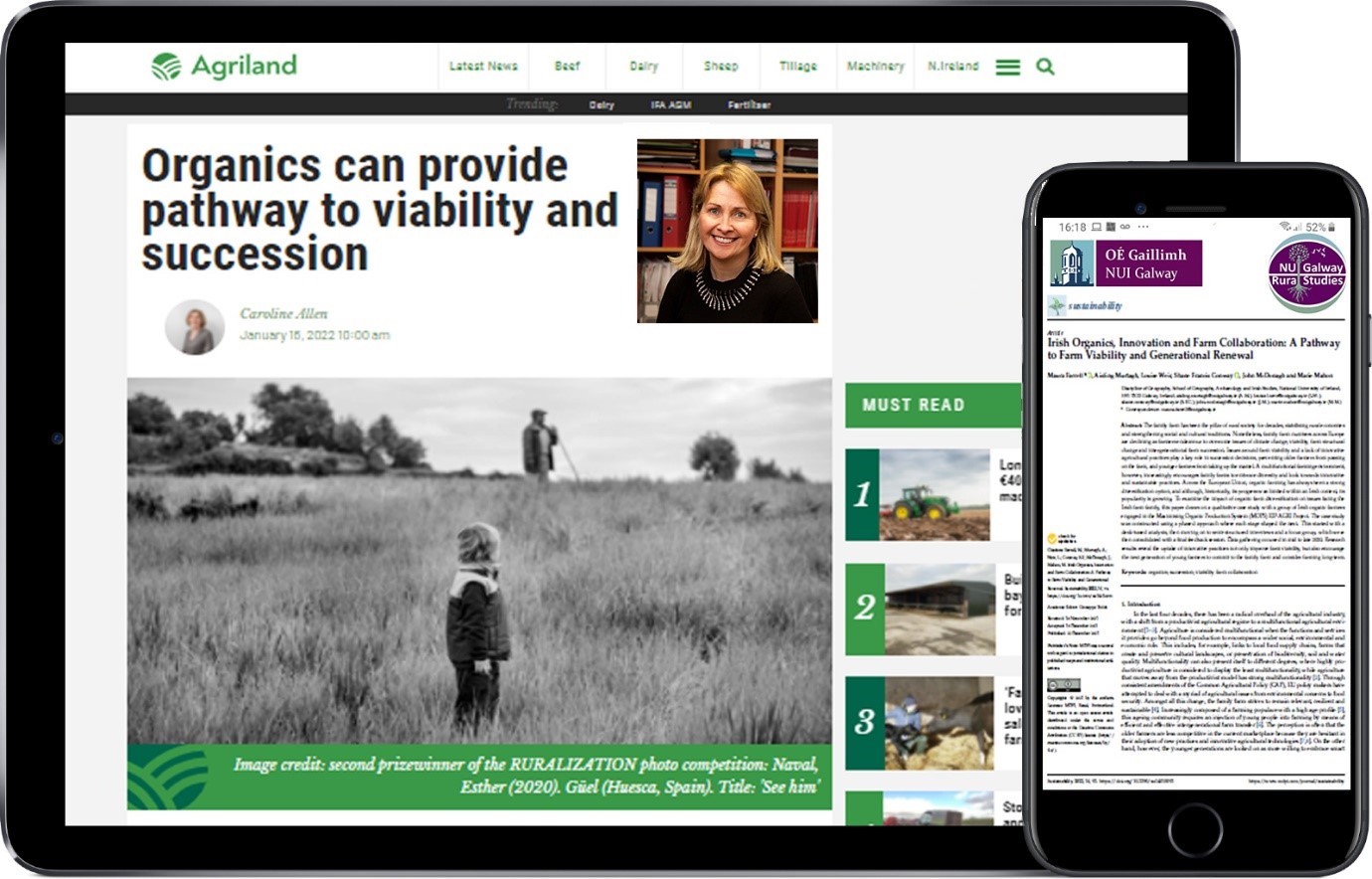
Dr. Maura Farrell, Lead Researcher with the National Rural Network, has recently published a new paper in the Sustainability Journal entitled ‘Irish Organics, Innovation, and Farm Collaboration: A Pathway to Farm Viability and Generational Renewal’.
This paper examines the impact of organic farm diversification on issues impacting the Irish farm family through a case study of a group of Irish organic farmers engaged in the Maximising Organic Production System (MOPS) EIP-AGRI Project. The paper acknowledges that while the family farm has been a pillar of rural society for decades, family farm numbers across Europe are declining as they try to tackle prevalent issues like climate change, farm viability and intergenerational farm succession. The application of innovative practices can help address these issues by not only improving farm viability, but also encouraging the next generation of young farmers to consider committing to farming long-term. The opportunity presented by organic farming, with a focus on horticulture-based farming systems in particular, to increase farm viability in the Irish context is therefore explored in this paper.
This research found that the MOPS EIP-AGRI Project has presented a model which can support the future environmental and economic sustainability of organic horticulture in Ireland. The MOPS Project also demonstrates the potential for group cooperation in supporting farm viability and succession. The research identified some issues relating to land access, succession and dealing with the perception of organic farming. This paper has found that organic farming can act as a catalyst in attracting new entrants into the agricultural sector, could potentially lead to greater levels of succession and could create a pathway for the returning successor who may have left to pursue education or employment elsewhere. These findings are relevant to future policy as targeted support incentives could address the specific needs of new entrants, successors and returning successors.
Find the full paper here.
Agriland have also recently explored this paper in an online article, available here.

